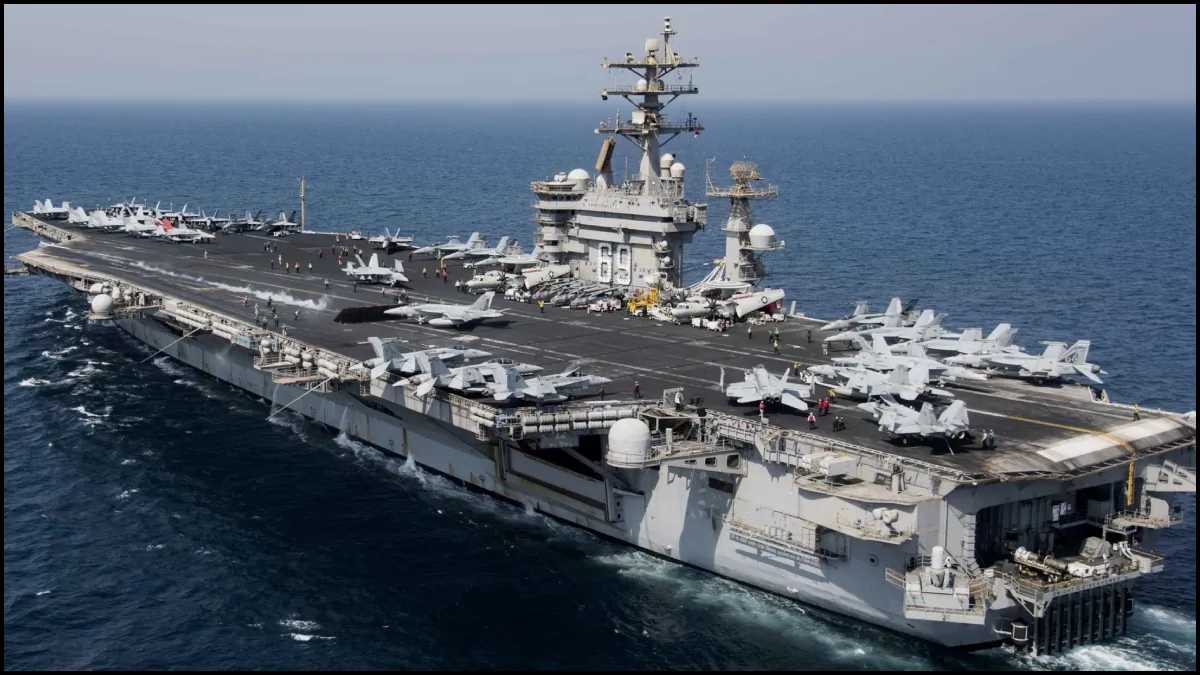US bolsters military deployment in Middle East to defend Israel from possible Iranian attack
The Pentagon said it would send additional fighter jets, Navy warships, and a carrier strike group to replace the one already deployed in the Mediterranean Sea. The assassination of Hamas chief Ismail Haniyeh has triggered calls for retaliation towards Israel, risking an all-out war.

Washington: The United States will bolster defences in the Middle East by sending additional fighter jets and Navy warships in the region as Washington promised to help defend Israel from possible attacks by Iran and its proxies following escalating tensions with the assassination of Hamas chief Ismail Haniyeh in Tehran. Iran and Hamas have accused Israel of Haniyeh's killing, although Israel has neither claimed responsibility nor denied it.
In a statement, the Pentagon said US Defence Secretary Lloyd Austin had ordered the USS Abraham Lincoln carrier strike group in the region to replace the previously deployed USS Theodore Roosevelt. He also ordered additional ballistic missile defense-capable cruisers and destroyers to the US European Command and US Central Command regions.
"Secretary Austin has ordered adjustments to US military posture designed to improve US force protection, to increase support for the defence of Israel, and to ensure the United States is prepared to respond to various contingencies... The Secretary has also ordered the deployment of an additional fighter squadron to the Middle East, reinforcing our defensive air support capability," wrote the Pentagon in a statement.
Tensions rise in the Middle East
The suspected assassination by Israel of Hamas' Haniyeh in Iran on Wednesday and Fuad Shukr, Hezbollah's most senior military commander, in Beirut a few hours earlier increases the risk of a dangerous escalation in Israel's Gaza war and of a regional conflagration between Israel, Iran and its proxies. Israel is reportedly on 'high alert' to respond to any attack and has promised to exact a "heavy price" for any aggression.
The US has had a consistent warship presence in the Middle East and in the eastern Mediterranean Sea, including two Navy destroyers, the USS Roosevelt and the USS Bulkeley. The US had intensified deployments there around April 13, when Iran carried out an attack on Israeli territory by launching hundreds of drones and missiles.
US leaders are increasingly worried about the escalation of tensions in the region. Earlier, President Joe Biden spoke to Israeli Prime Minister Benjamin Netanyahu, where they discussed efforts to support Israel’s defense against threats, including against ballistic missiles and drones, and to include new defensive US military deployments.
Biden says Haniyeh's killing 'not helpful' for ceasefire
Haniyeh had been the face of Hamas's international diplomacy as war raged back in Gaza and had taken part in the indirect ceasefire talks. He was seen by many diplomats as a moderate compared to the more hardline members of the Iran-backed group inside Gaza, although some Israeli commentators have said he was considered by some on the Israeli side as an obstacle to a deal.
The brazen attack on Haniyeh has dealt a critical blow to the Palestinian militant group and exposed the 'catastrophic failure' of Iran's intelligence and security. The United States had earlier said it was not aware of the attempt on Haniyeh's life and neither was it responsible for the attack. Biden on Thursday (local time) said Haniyeh's assassination in Tehran was not helpful for achieving a ceasefire in the nearly ten-month-long war between Israel and Palestinian militant group in the Gaza Strip.
Iran's Supreme Leader Ayatollah Ali Khamenei had ordered a "direct attack" on Israel in retaliation for Haniyeh's death, according to three Iranian officials, following an emergency meeting of Iran's Supreme National Security Council on Wednesday. Two Iranian sources said Haniyeh's killing sent shockwaves through Iran's top leadership, who are now deeply concerned that their security forces may have been infiltrated by Israel.